Almond Butter: Nutrition, Benefits and Recipes

March 7, 2019
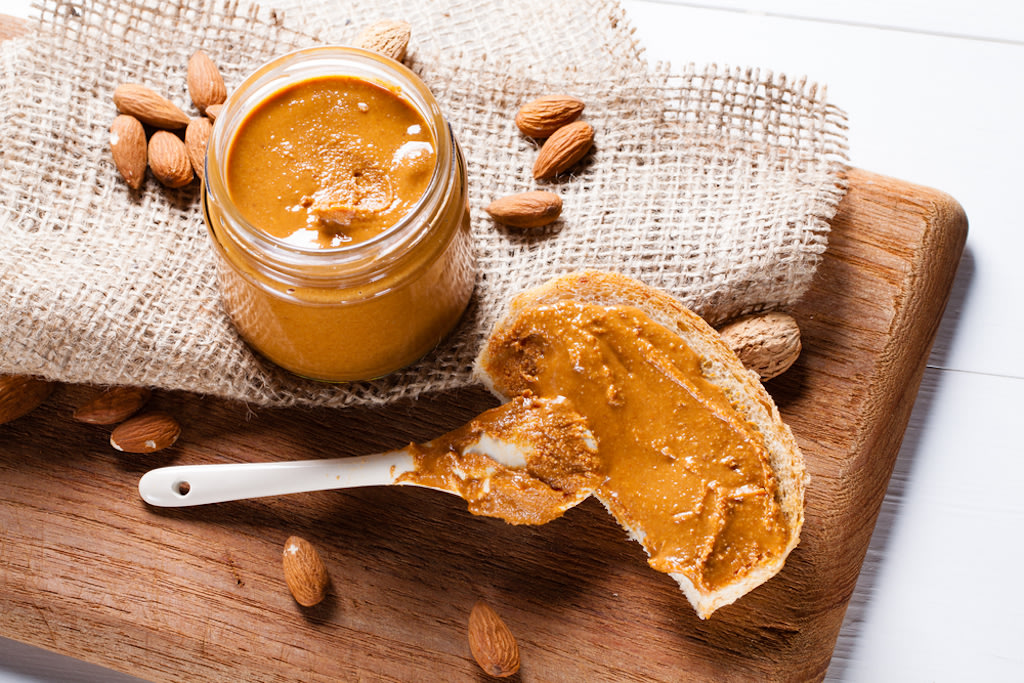
An alternative to peanut butter with plenty of nutritional benefits of its own, almond butter is enjoying its moment in the spotlight.
Many of us know about the health benefits of nuts but there is often confusion around whether nut butter should be considered a healthy addition to our diet. Is there a healthier option: almond butter vs peanut butter? Does almond butter have more nutritional benefits? Jump to:
As well as helping to explain more about the nutritional benefits, we’re also sharing how to make almond butter at home and some quick snacks you can make with it!
What is almond butter?
Made by blending raw or roasted almonds into a paste, almond butter is a quick and healthy spread that you can use in many different ways. Natural almond butter can be either store bought or you can make your own almond butter at home with a food processor.
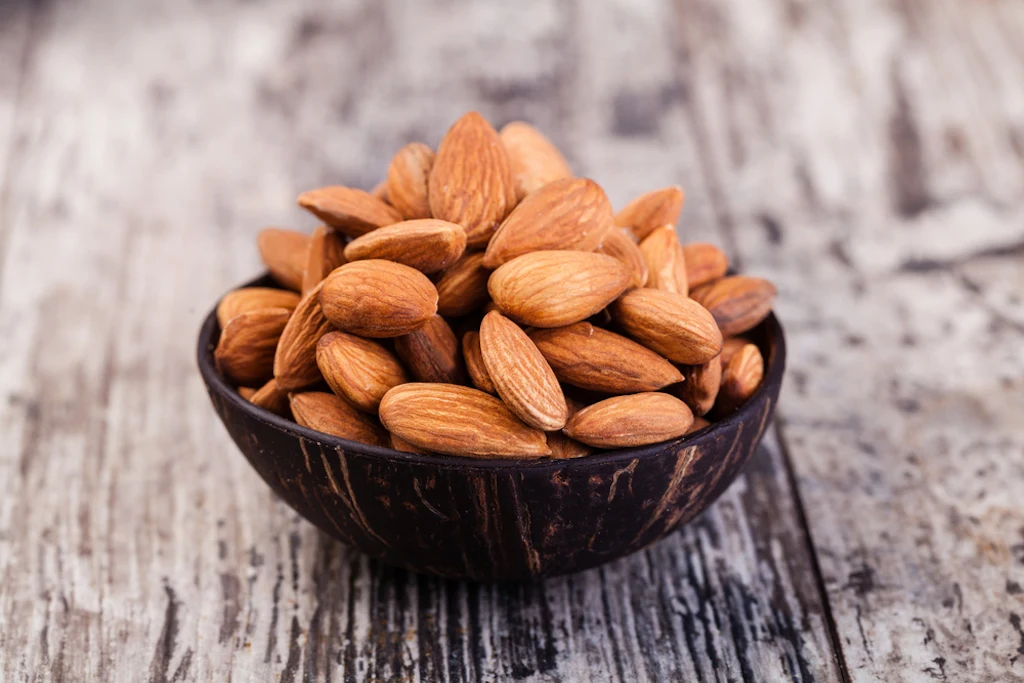
As well as being a versatile spread for toast, sandwiches or crackers, almond butter can also be added to smoothies for some extra healthy fats or it can be a base for sauce. Natural almond butter is a plant-based food, which means it is generally vegan and vegetarian-friendly (check the label for any store-bought spreads just to be sure). For anyone who might be following a low carbohydrate diet, such as the keto diet, almond butter is low in carbohydrates and can be a good way to increase your healthy fat intake.
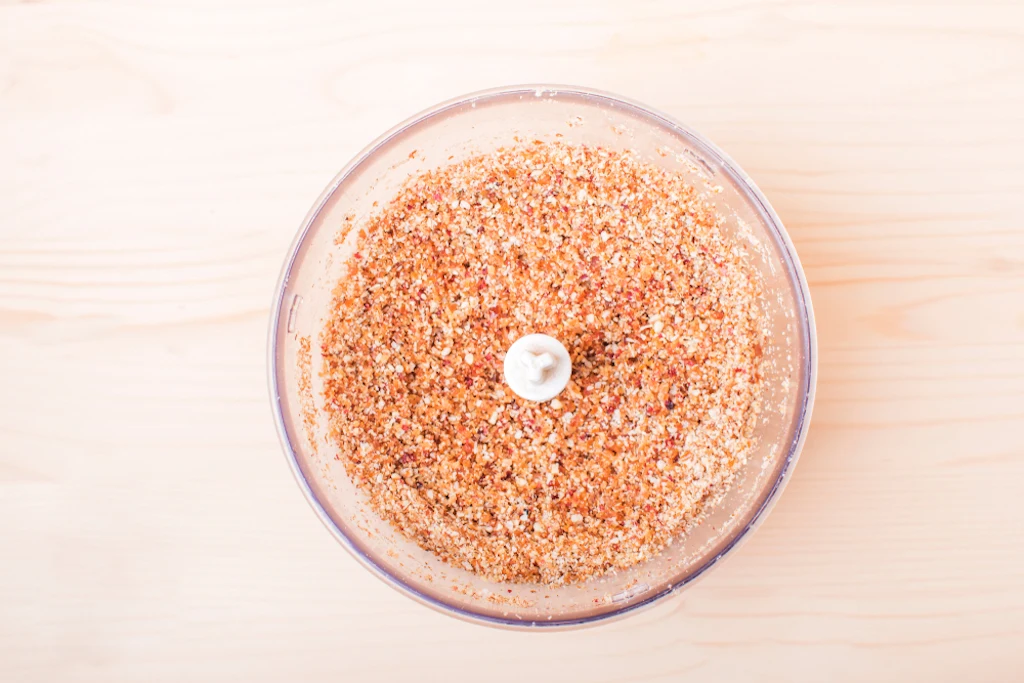
How to make almond butter
To make your own almond butter, all you need is a high-speed blender or food processor and some raw or roasted almonds.
Ingredients:
2 cups raw or roasted almonds
Sea salt, to taste (optional)
Method:
Place the almonds into the food processor or blender and pulse to break them into smaller pieces.
Blend the almond pieces until the natural oils are released and the mixture resembles crumbs. This may take a little while as the nuts break down slowly.
Turn off the food processor or blender and scrape down the sides of the bowl. Keep blending until the almonds resemble the desired consistency — it is up to you whether you like smoother or crunchier almond butter.
Mix in salt, if using, and transfer to a sealed container.
If you keep almond butter in an airtight jar or container in the fridge, it should last for a couple of weeks.
Almond butter nutrition and diet
You might already know that almond butter tastes great but what about almond butter nutrition information? Is it actually a healthy ingredient?
You’ll be happy to know that natural almond butter varieties have a strong nutritional profile, making them a good addition to almost any diet. Almonds are a source of healthy fats, as they largely contain monounsaturated fat. This can help to keep a balance of good cholesterol in the body, which is better for your heart. Almonds are also a source of fibre, protein and a number of micronutrients, including calcium, magnesium, vitamin E, biotin and folate.
Keep in mind that some store-bought almond butter varieties may include salt, sugar or other ingredients to enhance the flavour, extend the shelf life and minimise oil separation. If you are buying almond butter, check the label first to make sure it is as close to a natural product is possible. Otherwise, make your own almond butter so you know exactly what is going into it!
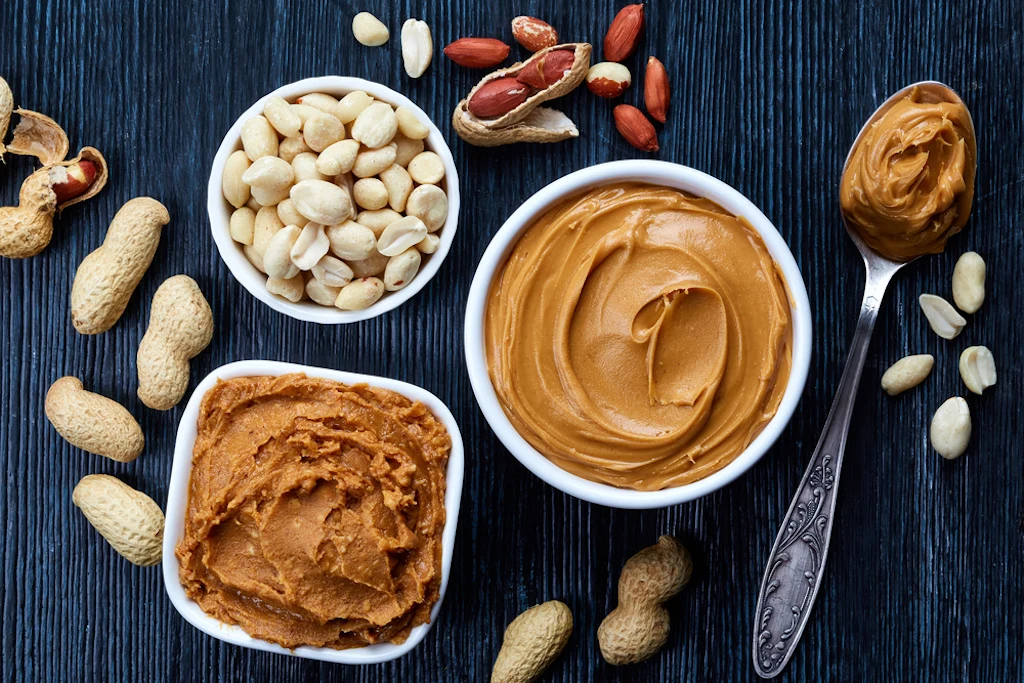
Almond butter vs peanut butter
They are both delicious and super versatile but which one is actually healthier for you? Good news! Both almond butter and peanut butter can be healthy options to add to your diet.
Depending on your personal health and fitness goals, you might prefer to have more of one than the other. For example, peanut butter does have slightly more protein than almond butter, so you may prefer it if you are eating more of a high protein diet. In terms of overall nutrient balances, almond butter tends to contain more vitamins and minerals than peanut butter. Plus, almond butter has higher fibre content and more healthy unsaturated fats.
Ultimately, which one you choose will depend largely on personal preferences and your own goals. You can always choose to have both!
Almond butter benefits
Almond butter is rich in healthy fats and in essential vitamins and minerals. There are a number of extra benefits to eating almond butter too.

Almond butter can be good for your skin
It’s no secret that what you eat can show up on your skin — a healthy diet with lots of key nutrients can help to support cell renewal, leading to naturally healthier skin.
Almonds contain healthy fats, as well as omega 3 fatty acids, which can help to improve the texture of your skin. Almonds and almond butter provide your body with vitamin E, an antioxidant that can help to fight skin damage.

Almond butter helps your brain
Your brain relies on oxygen-rich blood flow for optimal mental performance. Iron is a key mineral to help carry oxygen around to the body and to the brain, without sufficient oxygen you may find it hard to focus or you may feel fatigued. Almond butter can help to provide your body with iron, so it can be a great addition to a morning smoothie or as a spread on a piece of toast to get your brain powering.

Almond butter can help to support bone health
When it comes to bone health, almond butter packs a one-two punch. It contains both calcium and magnesium, so while we know that calcium is important for the development and maintenance of healthy bones, magnesium aids with calcium absorption. Together, these two minerals help to maintain bone density, something that is especially important for women.
Something to keep in mind with almond butter is nuts can be a common allergen, so if you or someone you are preparing food for has a sensitivity or allergy to tree nuts, you may need to avoid the use of almond butter. There are a number of other healthy nut-free spreads you might like to use instead, such as pumpkin or sunflower seed spreads.
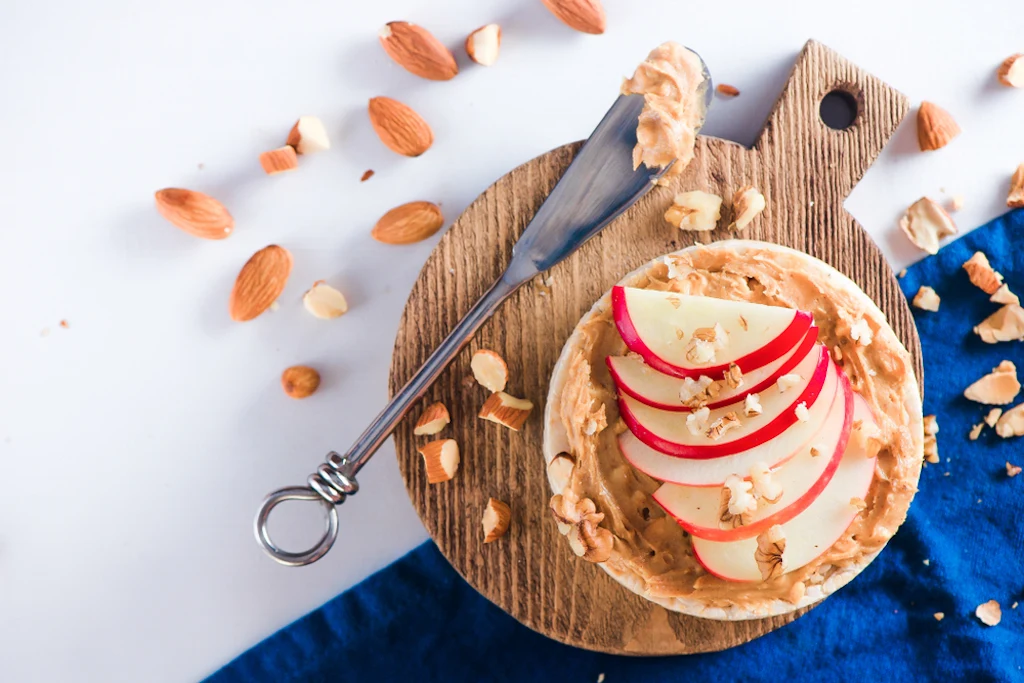
How to enjoy almond butter
You can either use almond butter in some of your favourite recipes or try substituting it where you would tend to use peanut butter.
How to use almond butter:
Use it as a toast topper — spread some on wholemeal or rye toast and add a sprinkling of fresh berries or some sliced banana on top. This could also be done on rice cakes!
Make some sweet potato toast and use almond butter as a topping.
Drizzle it over a smoothie bowl or on top of nice cream.
Spread some on raw apple slices to make healthy apple donuts!
Add some to a healthy smoothie.
Spread some between two crackers for a quick snack.
Swirl some almond butter and berries into plain Greek yoghurt.
Use almond butter as a dip for sliced carrots.
Spread almond butter onto celery slices and top with pepitas.
Add a spoonful of almond butter to your milk when making a chia pudding.
Use almond butter as a drizzle for homemade granola bars.
Mix a tablespoon into the ingredients to make your favourite bliss ball recipes even tastier.
These are just a few ideas to start you off — you can also get creative and find some new ways to enjoy almond butter as well.
Try these delicious almond butter ideas!
Hopefully, you’re feeling inspired to make your own almond butter and to use it in a range of different ways! Almond butter can be a great healthy fat to include in meals and snacks.
When looking at almond butter nutrition benefits, getting some extra fibre, as well as protein and a range of beneficial minerals all make this spread a good choice. Thanks to their nutritional profile, almonds (and almond butter) can help contribute to good skin and a healthy heart — just a few more reasons why you might want to start including it in your diet. Whether you drizzle it over a bowl of oats or use it in place of peanut butter in recipes like this Chocolate Banana Bread, almond butter is a great addition to the pantry.
Are there any ideas we missed? Let us know in the comments!

A more empowered you starts with Sweat, and our editorial team is here to bring you the latest fitness tips, trainer recommendations, wellbeing news, nutritional advice, nourishing recipes and free workouts.
* Disclaimer: This blog post is not intended to replace the advice of a medical professional. The above information should not be used to diagnose, treat, or prevent any disease or medical condition. Please consult your doctor before making any changes to your diet, sleep methods, daily activity, or fitness routine. Sweat assumes no responsibility for any personal injury or damage sustained by any recommendations, opinions, or advice given in this article.
Nutrition